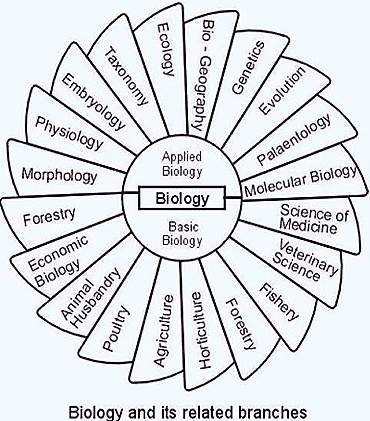Some people say that the employment prospects of bioengineering are very good, and some people say that they can only take the scientific research route to study this major. This article will cover the introduction of Canadian bioengineering major courses, employment prospects, professional rankings, professional skills learned, as well as the views of netizens and UtoCanada.

Analysis of Bioengineering 1: Majors, Curriculum, Program Rankings
Introduction to Canadian Bioengineering
Biological engineering is sometimes also referred to as Bioengineering. In this major, elective courses in mathematics and computer science can be very useful. These courses will assist future biotechnology professionals in career applications such as modeling and simulating biological processes.
In addition, the bioengineering major attaches great importance to the ability to solve problems, laboratory procedures and proficiency in the use of experimental equipment. Common equipment used in bioengineering includes: automatic cell counters, robot laboratory equipment, fluorimeter, microscope, scale, polymerase chain reaction (PCR) equipment, etc. Many employers will not even call you if you do not have experience operating these devices. Fortunately, there are many opportunities in biology degree programs to familiarize yourself with these devices and lab procedures, and to gain laboratory experience through regular classes and lab projects.
》Additional Info: Difference Between Bioscience and Bioengineering
In fact, there is a lot of overlap between the courses taken in biological science and biological engineering. Even after graduation, students apply for the same occupations. However, there is still a difference between them. If summarizing the differences between the two in just one sentence, it is that biological science focuses on knowledge and bioengineering focuses on application. Our professor used to say, "Science answers what. Engineering answers how." Summing up my understanding, majors that have the word, “science,” in its name generally focuses on concepts, knowledge and working principles, whereas, with “engineering,” the major generally focuses on the practical application of a discipline.
Introduction to the Canadian Biology Major
Biology is the study of all living things, the development process of each, and their relationship with the environment. Because organisms include plants, animals, insects, marine life, and microorganisms, so plant science, animal science, entomology, marine biology, ornithology, biological engineering, etc. are all branches of biology.
Many undergraduate biology courses involve intensive laboratory research activities. In these courses, you will learn practical skills, such as the proper use of scientific equipment, and various techniques for investigating living organisms and their functions.
What courses do I study in biology?
With the diversity of living things, there are also many things in common. Usually, an undergraduate biology program teaches students about various biological concepts along with basic knowledge in the first two years. During this period, students can also choose a professional field in biology according to their interests. In fact, the subdivided courses in the next few years are based on these concepts and technologies.
The core courses required for the undergraduate stage are all basic subjects/core courses:
- Cell Biology
- Microbiology
- Immunology
- Chemistry
- Biochemistry
- Cell and Molecular Biology
- Genetics
- Ecology
- Statistics
- Molecular Biology
(Refer to theUniversity of Toronto Biology Courses)
The core courses of the master's program are:
- Molecular, cellular and tissue biomechanics
- Cell matrix mechanics
- Biomolecular and cell dynamics
- Field in biological system
- Force and flow
- Bionetwork analysis
- Biomaterials and tissue reaction
- Design and application of medical equipment
- Molecular principles of biological materials
Employment prospects of Canadian bioengineering graduates
At present, there is quite a diverse field of jobs for bioengineers. In all cases, biological engineers combine their mathematical and scientific skills to find solutions to the many problems the world is facing today. Let’s look at some specific examples. In the environmental protection industry, bioengineers work to improve environmental pollution, the protection of soil, and to purify water resources; in the medical industry, bioengineers design new medical methods, such as the popular microbiome therapy, stem cell therapy, Nano Biotechnology and CRSPR gene editing therapy; in agriculture, bioengineers work to hybridize crops, transgene seedlings, etc.;
According to data from the U.S. Bureau of Labor Statistics, there were more than 18,000 biomedical engineers working in the United States in 2012, with an average income of $91,200 (Editor's note: Canadian data is temporarily unavailable). Biomedical engineering is also one of the fastest growing disciplines in engineering. Between 2008 and 2018, due to the aging population and the huge market demand for new medical technologies,the number of biomedical engineering jobs is expected to increase by 72%。
》Who hires biotechnologists?
As mentioned above, biomedical engineering is also one of the fastest growing disciplines in engineering. More and more investors are looking at bioengineering technology, which means more and more companies and institutions are recruiting bioengineers/technicians. Here are some examples:
- Food processing and manufacturing companies
- Pharmaceutical companies
- Oil and gas companies
- Chemical manufacturers and distributors
- Agricultural companies
- Biological and environmental consulting companies
- Federal and provincial/state government departments (particularly those involved in parks, fish and wildlife, agriculture and public land)
- Forensic laboratories
- Universities and colleges, research laboratories
》Jobs of biotechnologists/engineers (specific job description)
The main tasks of bioengineers and technicians are done in the laboratory. They provide technical assistance to scientists working in the fields of environmental science, natural resource management, plants, zoology, biochemistry, health care and agriculture. Their specific job description is likely to include:
- Supervise junior employees, students and interns
- Collect industry-specific information, such as information related to land use and recycling
- Maintain laboratory equipment and tools
- Prepare progress reports for bioengineers
- Conduct plant and animal inventory surveys to gather information about plant and animal distribution and abundance
- Oversee the operation plan of fish hatchery, greenhouse or livestock production plan
- Conduct biological, microbiological, chemical and biochemical tests
》Salary of bioengineering graduates: Decisive factors & income
The level of salary that can be obtained as a bioengineering graduate may vary greatly, and usually depends on the following factors:
- Education level (Bachelor, Graduate, etc.)
- Whether you are ultimately engaged in the field of bioengineering
- Whether you have a professional title (such as P.Eng)
- Amount of work experience accumulated
- The size and type of company
- Industry
- Employment location
- Soft skills (such as English proficiency)
Income of biotechnologists in the United States:ccording to the U.S. Bureau of Labor Statistics, the median annual salary of American workers in the biotechnical occupation is $39,750 per year.
Average income of biotechnologists in Canada:According to statistics from the Canadian Department of Services, the average salary for Canadian workers in the biotechnologist and technician occupation groups is $39,113 per year.
》Three bioengineering degrees: college diploma, undergraduate degree, graduate degree
Traditionally, Canadian bioengineering training can be obtained in three forms:
- Bioengineering Specialist:generally 2-3 years
- Bachelor of Bioengineering:generally 4 years to complete
- Masters in Bioengineering :generally 2 years to complete
The top 10 universities are:
According toMacLean’s Magazine, here are the program rankings of the top universities in Canada:,排名前10的学校有:
1、University of Toronto(Biology major )
2、 UBC(Biology major, University of British Columbia)
3、 McGill University(Biology major)
4、University of Alberta(Biology major )
5、McMaster University(Biology major )
6、University of Guelph(Biology major, University of Guelph)
7、 Dalhousie University(Biology major)
8、University of Calgary(Biology major )
9、Queen’s University(Biology major)
10、Simon Fraser University(Biology major, Simon Fraser University )
Analysis of Bioengineering 2: What are the employment prospects? Is it easy to find a job?
》Canadian Biologist Jobs: The Big Picture
Many people say that in Canada, biology is a "sunrise industry", but many graduates would tell us, from their experience, that it is more of the opposite. The reason is a lot of work in the biological field stays in the research stage, not the application stage. Many netizens are actually right. Most of the students who choose biology majors need to further their study to obtain a graduate degree in order to pursue a career in the same field. I graduated majoring in botany and I haven't been able to find a decent job for many years. Classmates in my majors were indeed all rushing to study in graduate school.
Although it is said that the industry itself has developed rapidly here in the world, the Canadian bio-industry is not as developed as China, the United States, Germany, or other countries. There are not many large biopharmaceutical companies in Canada. Whenever there are bioscience companies starting up, they will usually be acquired by larger and more famous international companies such as Siemens and Medtronic. Now, it is hard to say how the Canadian bioengineering market will develop in the future. As of now, most of the demand for bioscience technicians comes from China, Europe and the United States.
》Do you really like bioengineering?
Just like UtoCanada has always emphasized, before choosing a major, you must make sure that you are really interested in this major to ensure that you have potential in this area. This is why we have compiled so many detailed introductions about different majors in universities. You can determine whether this is your future career direction by studying more bioengineering professional profiles, job prospects, job descriptions and other information.
If you really like bioengineering, in a country like Canada, where companies value experience more than education, you may want to take up an internship position (co-op / field placement) to obtain professional-related work experience, that is, if you decide not to pursue graduate studies. Having relevant work experience can increase your chances of finding work in this field.
To learn more about various aspects of a biotechnologist's career, please visit:
- Alberta Learning and Information Service website: alis.alberta.ca
- Canadian ECO website: www.eco.ca
- Bureau of Labor Statistics website: www.bls.gov

















